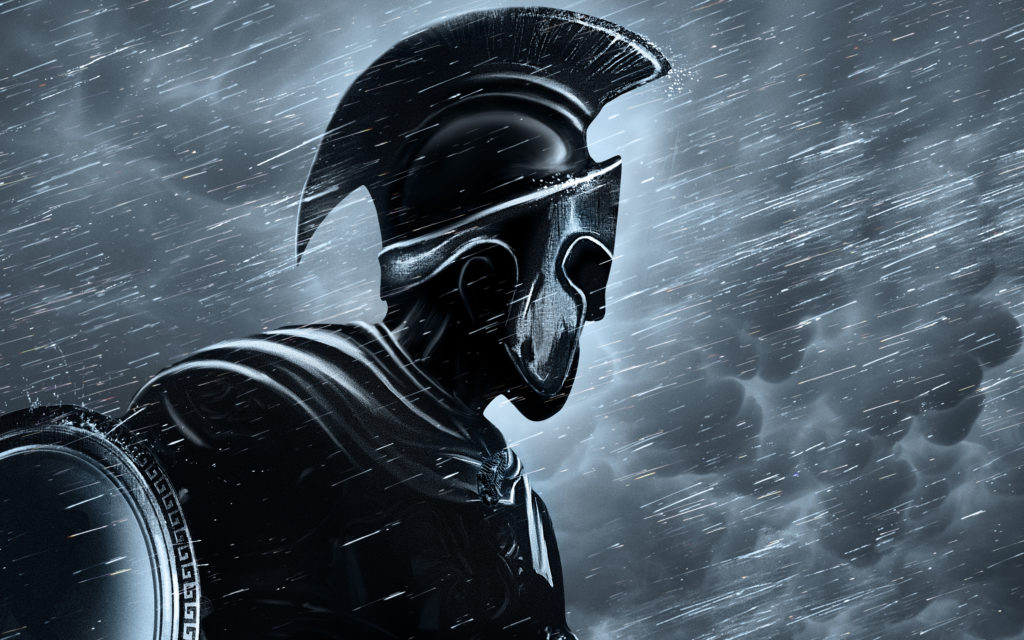
“Being a warrior is not about the act of fighting. It’s about being so prepared to face a challenge and believing so strongly in the cause you are fighting for that you refuse to quit.”
– Richard Machowicz, Author of “Unleash the Warrior Within”
Sports are sometimes likened to war or battle, which in itself is ludicrous, but one parallel that can be drawn is between the warrior mindset shared by athletes and soldiers. Warriors are renowned for their mental toughness and understanding how they develop that resiliency is something that can in turn be used to better prepare young athletes for the battles they will someday face.
Navy Seal Training
It is no secret that some of the most mentally tough individuals on the planet are those who endure the rigorous training of the Navy Seals program. Because of the challenging and highly-dangerous missions these warriors are commanded to undertake as part of their job, it is absolutely essential that they are both courageous and impervious to the effects of fear.
The secret to their training lies in the practice of habituation, a form of learning in which a subject decreases or ceases to respond to a stimulus after repeated exposure. For Navy Seals training, that means if you continue to expose a soldier to something they initially fear, you can eventually condition them to overcome the fear. In an interview with Men’s Health Magazine, Sergeant Bill Cullen of the First Battalion of the Fourth Marines put it this way “Essentially, you’re bending the body’s software to control its hardware. It works standing over a putt on the 18th green. It works shooting a final-second free throw. It works banging down a door with a bad guy on the other side.”
Additionally, while being extremely physically fit is a huge component of being a Navy Seal, it is only considered a prerequisite for those who want to be a part of this elite unit. What is much more important is the mental component. Those seen as being mentally weak are the first ones that get screened out, no matter how impressive the physical statistics are. Lieutenant Commander Eric Potterat made an interesting correlation between Navy Seal candidates and Olympic Athletes. “Physically, there’s very little difference between athletes who win Olympic gold and the rest of the field. It’s like the SEAL candidates we see here. Terrific hardware. Sit-ups, push-ups, running, swimming — off the charts, superhuman. But over at the Olympic center, the sports psychologists found that the difference between a medal and no medal is determined by an athlete’s mental ability. The elite athletes, the Tiger Woodses, the Kobe Bryants, the Michael Jordans — this is what separates them from the competition. Knowing how to use information.”
Essentially, what it all boils down to for these elite soldiers is that by consistently putting themselves in demanding situations or stressful environments on a daily basis in training, they condition their minds to the point they no longer have an emotional attachment to danger. In essence, they become immune to fear and much less likely to fold under mental duress.
Spartan Training
“The Spartans say that any army may win while it still has legs under it; the real test comes when all strength is fled and the men must produce victory on will alone.”
– Steven Pressfield, Gates of Fire
Personally, one of my favorite movies of all time is 300. It is the story of the Battle of Thermopylae where a small cadre of 300 Spartans battled impossible odds in defending their homeland against an invasion from the Persian Empire whose army was reputed to have one million soldiers. It seems ridiculous to believe that such a thing would be possible, but Spartans were no mere soldiers.
In their era, Spartans were regarded as the most disciplined and fierce warriors in the world. Spartans were known for their rejection of anything perceived as weakness and they pursued training with the singular focus to enhance their ability to perform in battle. One of most intriguing aspects of the Spartan development of mental toughness involved bathing in cold water.
In Ancient Sparta, hot water was considered a luxury and Spartan warriors eschewed anything they perceived as being indulgent or leisurely. Therefore, they would engage in daily baths of freezing water, as they believed it would mentally prepare them to endure discomfort and build resilient spirit. Being able to overcome the physical and mental toll of the chilly water took exceptional willpower and strengthened their mental toughness to the point that they became comfortable with discomfort. When you consider that the average person is likely terrified to take cold showers, it shows that it takes an exceptionally tough individual to undertake this type of challenge.
The point of the story is this; exceptional people often do things that others would consider insane. The truth is, you cannot get extraordinary results with ordinary training. Facing a situation one dreads by its very nature helps to build inner strength and forces the body to adapt. Only by testing oneself and pushing through barriers can one experience true growth.
So how can we apply this knowledge to young athletes? Obviously we are not preparing to send these kids to war, but some of the concepts are similar. Getting young athletes to face their fears head-on and not allowing them to make excuses or take the easy way out. The overall takeaway from looking at the way soldiers train to enhance mental toughness is that it can be developed. Mental toughness is not simply an attribute you are born with, but something that can be significantly enhanced with the right training.